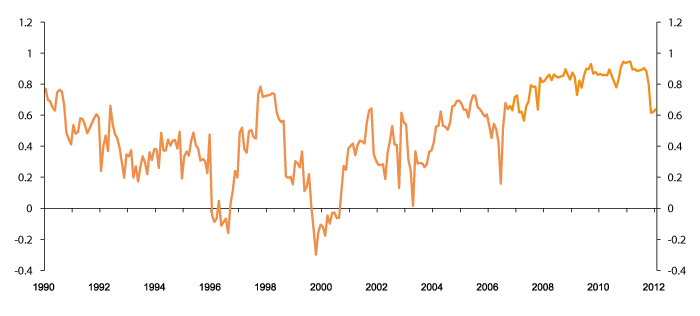What Does a REIT Fund Have to Offer Financial Web
Post on: 1 Апрель, 2015 No Comment

A REIT fund is a mutual fund that invests in stocks issued by a variety of real estate investment trusts (REITs). Each REIT is a company that invests in real estate, earning profit by either selling or renting out its real estate properties. REITs don’t have to pay corporate income taxes, but in return for this exception, they must distribute 90 percent of their profits to their investors. Those profits are put into stocks, and everybody who invests in those stocks earns annual dividends. REIT funds have a number of benefits to their investors, but they also have a few potential downsides investors should be aware of.
Diversity
One of the biggest benefits of investing in REIT funds is their diversity. Each REIT tends to be monolithic, focusing on a certain type of property. For example, one REIT may be focused on commercial properties, while another REIT is focused on residential apartment buildings. However, REITs in general are fairly diverse. In addition to previously mentioned types of REITs, there are REITS that focus on office buildings, industrial buildings and hotels. A mutual fund takes several different types of REITs and puts them together. That way, if one REIT is suffering losses, the investors can rely on other, better-performing REITs to earn profits. This is known as diversification.
Profits
Another major benefit of REIT funds is the way the investors generate profits. They can do it in two ways. They can either buy REIT stocks and sell them for profit, or they can simply keep their stocks and earn profits off the annual dividends. The presence of dividends means that investors don’t need to worry about market trends—even if the market is down, they will earn some kind of profit. This, in turn, means that they can be as aggressive—or as passive—in their investment strategy as they feel comfortable with. Furthermore, the dividends offer the investors an opportunity to earn profits off real estate withing having to actually buy real estate, allowing them to save money.
Negative Correlation with the Stock Market

Another interesting benefit of investing in REIT funds is that their stocks tend to perform best when other stocks are struggling. This is because they are traditionally considered the safe options. In bull markets, the investors tend to prefer to invest in riskier stocks, since they tend to generate greater returns. Since fewer investors invest in REITs, the number of available REIT stocks increases, which causes their values to go down. In a bear market, however, investors tend to invest less aggressively, preferring to invest their money in stock where some profit (however small) is assured. This causes the supply of REIT stocks to decrease, which, in turn, causes their values to go up.
In the current real estate market, these advantages are further boosted by the fact that the rental market is experiencing a resurgence as more and more people choose to rent apartments rather than buying houses or condominiums. Since all REIT funds are at least partially invested in rental properties, the value of the dividends will inevitably go up.
Tax Issues
For all of the above-mentioned advantages, REIT funds do have one disadvantage — the profits they earn from dividends are fully taxable as income. Whereas with stocks investors can manipulate gains and losses to reduce their tax burdens, with dividends, no such option exists. The fact that they always generate profit also means that the investors will always have to pay income taxes. The investors can avoid this problem by putting their dividend profits in tax-deferred accounts such as 401(k) plans, but this is strictly temporary, since they will have to pay taxes as soon as they actually use the resulting funds.














